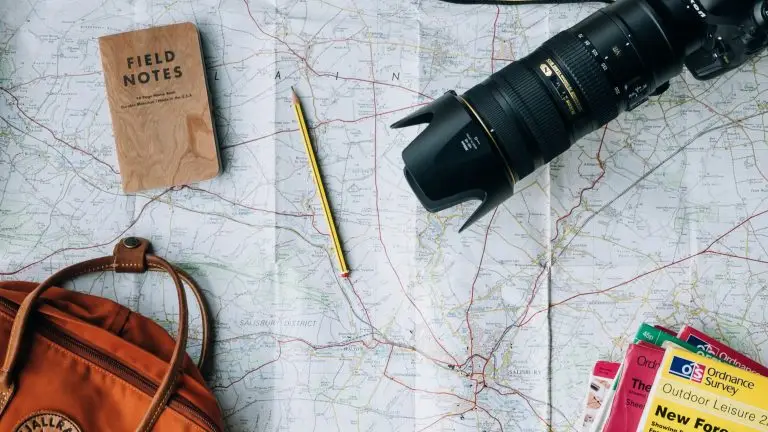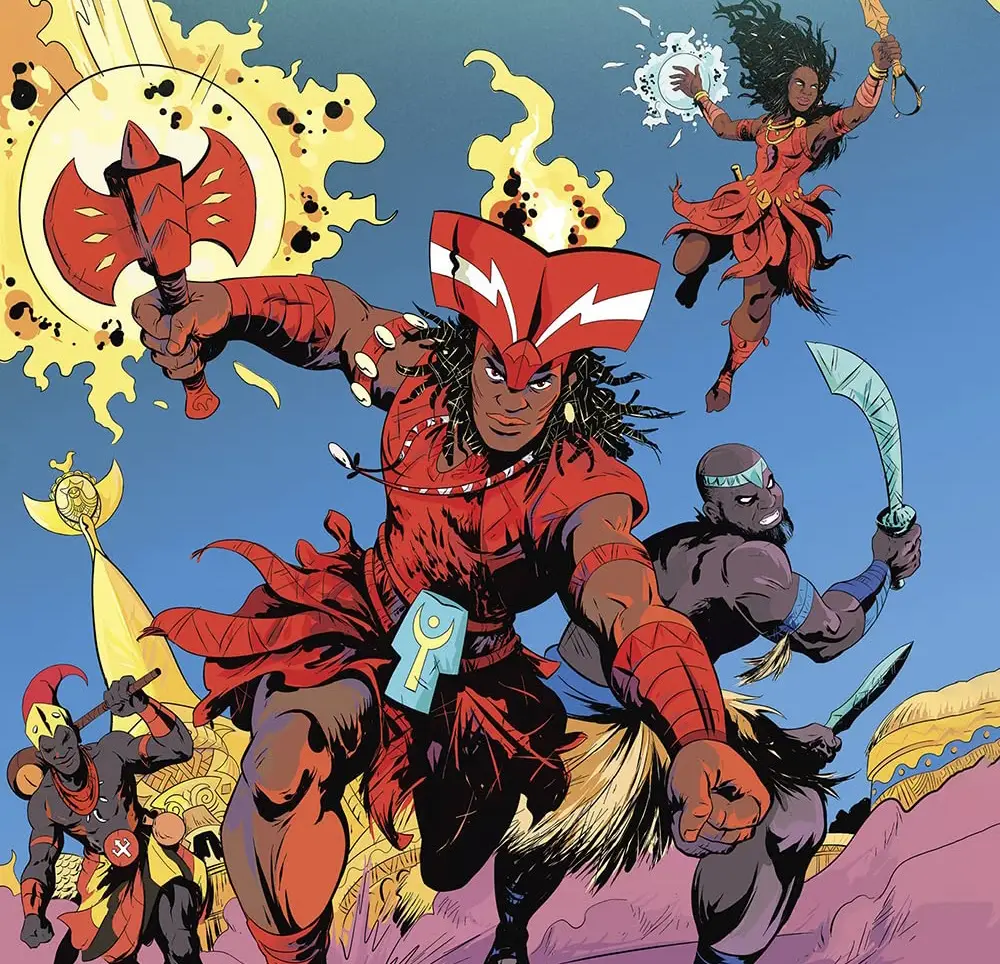
Turning Gods Into Superheroes | Tales Of The Orishas & Hugo Canuto
Last year, I visited Bahia, one of the most magical places I’ve ever been. Its capital, Salvador, is known as the blackest city outside of
Syrian singer Khaled Alhafez has taken on the life mission of protecting and documenting Muwashshah.
But why is it so important, and what is Muwashshah?
In today’s interview, Khaled Alhafez and his student Ghizlane Gzili will introduce us to the famous Arabic music genre, its origins, and why it is essential to preserve.
But before Khaled and Ghizlane take us on this remarkable journey, let’s introduce our musical guides (or guests) first!
Khaled Alhafez was born in a small city in Syria close to Aleppo and the Turkish border.
Music, especially Muwashshah, was part of his everyday life while growing up. When he was 10, he started playing and studying music, and at 15, he joined the Aleppo Conservatory to learn the Muwashshah from maestros. He later became a teacher at the Conservatory of Damascus and toured the Arab world with the Ramal and Nawa bands.
Due to the Syrian war, he emigrated to Belgium in 2013.
Despite the civil war and troubling economy during the formative years of his learning and practicing music, he remained committed to the cause of reviving Muwashshah. He continued teaching music on Labyrinth Online (a transcultural music learning platform) and participated in workshops and music festivals across Europe, the United States, Canada, and several Arab countries.
Khaled has produced (or co-produced) 2 albums. He collaborated with Wajd Ensemble to create the first album, Musique d’Alep, and with the band Refugee For Refugees on Amina, an album co-produced with the Muziekpublique.
Khaled Alhafez is on a mission to preserve the traditional art of the Muwashshah. As Muwashshah is a centuries-old tradition, some pieces are on the brink of extinction. Khaled’s work is to bring long-lost pieces back to life. He gives them a modern touch that makes it easier for the public to connect without compromising the songs’ musical rules and soul.
Now, on to our second guide, Ghizlane Gzili.
Ghizlane Gzili is from Morocco, where she grew up, and later moved to Montreal, Canada. After spending ten years in Canada, she returned to her home country, Morocco.
For as long as she can remember, she loved singing. Her classmates, teachers, and others gave her compliments about her beautiful voice as she participated in many musical school activities.
Throughout her upbringing, Ghizlane described that her religious beliefs were influenced by the idea that music was not permitted, including singing publicly as a woman. As a result, Ghizlane decided to give up music altogether.
However, that caused her a perpetual internal conflict. How do you convince yourself that something you love is bad? She decided it was best to avoid music until another interesting incident happened a few years ago.
When Ghizlane was living in Montreal, the city hosted a music festival in which some of her friends were going to participate as backup singers for one of the concerts. She was encouraged to join.
The concert went well, and the festival requested her and her friends to participate again. This time, it was Khaled Alhafez performing, and Ghizlane immediately fell in love with Muwashshah.
After watching all of Khaled Alhafez’s videos – in her words: “basically stalking him on YouTube because of the beauty of the music and his performances” – she reached out to Khaled for online classes.
Khaled wasn’t a fan of online classes and politely declined. Luckily or unluckily, COVID hit, and online classes were the only way to engage and learn. That’s when Khaled became Ghizlane’s teacher, and she became his course assistant and language interpreter.
Since then, Ghizlane started performing in small scale concerts in Canada and even in Peru. Now that she’s back in her home city, Marrakech, she’d love to perform there.
During this interview, Ghizlane translated from Arabic to English to help share Khaled’s story with the world.
So, onto the interview!
It’s important to distinguish between two different meanings of Muwashshah.
(1) The first Muwashshah is a form of poetry that originated in Al-Andalus in the time of Arab or Muslim Spain in the 9th century.
(2) The second is the vocal form, which doesn’t necessarily go back that far. It’s more of a modern form and developed in Syria, Egypt, and Lebanon.
Muwashshah was highly influenced by Assyrian church music and later by Ottoman music during the Ottoman conquest. Many say that the word “Muwashshah” comes from Athenian origin, but that’s not 100% proven.
Sufi music and Muwashshah are different genres and not interchangeable. The main difference is that Sufi music is always spiritual, which is not a prerequisite for Muwashshah.
Muwashshah lyrics could be about mundane things because the focus is on the long rhythms and complex melodies. The basis is the Maqam system, a traditional melodic mode system common in many Arabic songs. That technique and poetry are what’s most important.
On the contrary, Sufi music focuses on reaching a spiritual state. The structure of the songs is secondary, and many pieces have a simple technical form. You’ll see that all Sufi songs talk about divine love and spiritual aspects, whereas Muwashshah can include themes like the beauty of a woman.
Of course, some Muwashshah are also Sufi, but not every Sufi song is a Muwashshah.
If you’re interested in qawwali Sufi music, check out Nusrat Fateh Ali Khan in my Pakistani Music article.
To master any craft, you need a guide. For me, my maternal uncle was that guide. Now, When I first heard the Muwashshah? It was pretty much whenI came to consciousness. It was my whole family’s environment. My mom would listen to Muwashshah singers like Mohammed Abdel Wahab and Karem Mahmoud.
And my two uncles were indeed multi-instrumentalists, so I had that musical education from a very young age. Growing up, I started listening to everyone who sang Muwashshah.
However, my uncle guided me to pick the right people to listen to and learn from how they performed. He would tell me to listen to this person, but not to that one, because of issues with their technique.
I was also actively listening to a lot of Ottoman music, characterized by elegance and and suppleness in the singing. So that’s how I was brought up, fully immersed in music since I can remember.
I don’t consider myself to be dedicated to music professionally as a full-time thing. To me, it was always something I loved. It was a hobby, but a hobby that I was taking seriously.
Now, if you ask me about my profession, I’m a tailor and own a tailoring company. I have owned this company (since I was) in Syria and work in the same field in Belgium.
So, I don’t consider myself a professional singer, but I do have a baggage of information I would like to teach and share with people. But music isn’t my primary source of income.

My work as a tailor is an art and a craft, too. An art that is not disconnected from music.
Art is always interconnected because it shares that element of personal taste. I don’t do anything if I don’t truly believe in it. When I do my work as a tailor, I do it out of love. It’s the same for music. If I get approached for a project or festival I’m not convinced of, I’ll excuse myself.
So, I approach music and my job from a place of love, passion, and art.
To listen a lot because you need to build a lot of vocabulary. You need to have extensive baggage in your subconscious, in the background, for you to be able to use it later. So, listening can be considered half of that science. That’s the first thing.
After that, advice can be customized to each person’s needs, right? I always tailor my advice to each student’s circumstances and what they need to improve. But a lot starts with singing and pronunciation. It’s crucial to pronounce things correctly.
I ask my students to listen to artists who focus on conveying meaning in their melody, and I like to focus on older pieces. It’s vital to teach something in its original state rather than what we see now: a lot of hybridization with the different music systems and modes. I like to ensure that my students are exposed to the origin first.
Note: Khaled Alhafed used to teach Muwashshah in the Conservatory of Damascus and Aleppo until 2013. He then moved to Belgium, where he still teaches. He was also associated with Labyrinth Online, where he he taught online workshops, with Ghizlane as his assistant and language interpreter (Arabic to English).
Personally, I’ve taken the advice of listening to heart and listen a lot. I remember when I was still in Montreal, especially during the pandemic, I would go walking while actively listening to music. I would do that for hours until my body got physically tired. From the beginning, I knew listening was essential, so I internalized it and put it into practice.
And I would say the challenge was more on the psychological side rather than the actual learning of the art. For example, I would tell myself, okay, you’re starting quite late; you need to catch up. And without realizing it, I found myself comparing myself to people I’m listening to, which is ridiculous. But I had to fight with many of those psychological barriers and obstacles we put on ourselves that often have nothing to do with the actual work.
One of the major lessons I have learned from Khaled was the importance of finding the right balance and proportion. Because often, with many singers, I find a lack in balance between proper technique, soberness in performance, soul, and effortlessness.
But with Khaled it’s different. He makes it sound so easy when it is certainly not. In my opinion, he offers the exact right proportion of technique, soul, simplicity, and challenge. He’s honestly the only singer that I can listen to for 3 hours straight without getting tired, and I have done it countless times. I am not exaggerating.
And, if I’m practicing something and I record myself, I keep those factors in mind, okay, am I, am I trying too hard? Is this too embellished, or not embellished enough? Is this correct? Starting with the proper base is important, like getting the intonation and pronunciation right. That’s the basis. Then, after that, you can add your own touch.
There’s a certain science to it . There’s always that balance between giving people what they expect and providing surprise, but not so surprising to the point that nobody can relate.
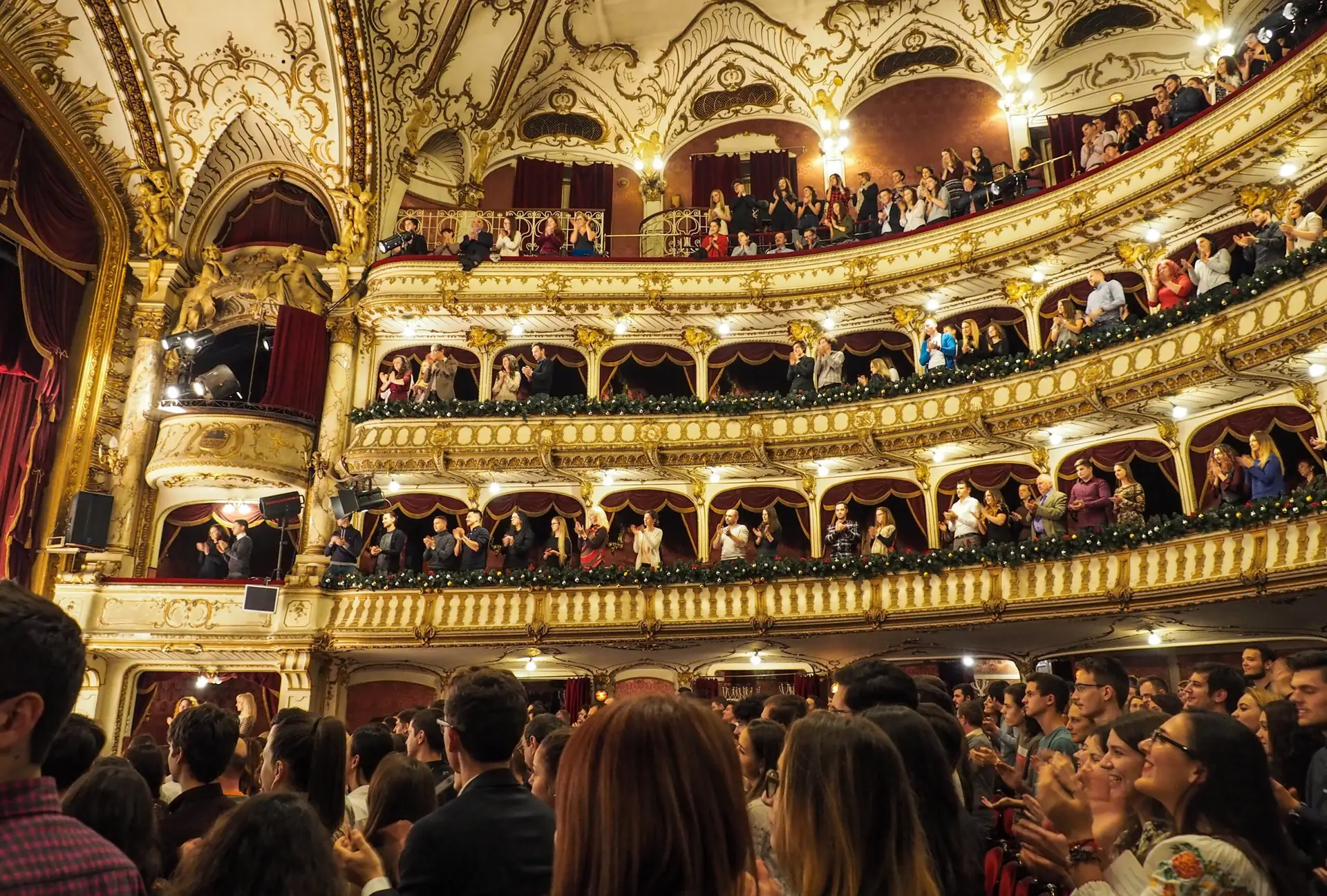
There are three pieces of advice that I deem not to be beneficial.
The answer is twofold.
The first one is marketing, which is basically the role of mass media, which makes a lot of singers very famous. That goes back to having financial support and a lot of connections. Having the proper financial support and relationships can lead you to fame.
And people see fame as the unit of measurement for success. So they think that, okay, as long as a person is famous, they must be doing something right. They must be doing what’s supposed to be done. And that’s how the audience perceives them.
As a result, the general taste gets molded based on that particular person.
The answer to the second element about mixing things, is that there is a good way to go about it, and there’s an incorrect way.
Suppose you take an old composition, and you just decide to change the very basics of it and add things of your own. In that case, you’re no longer following the rules and regulations of that particular vocal genre. Note: this is similar to the advice from Fado singer Sara Paixao.
And I talk about any genre, whether the Muwashshah or another vocal genre, Sama’i. It is also based on certain regulations that need to be respected when performed. If you choose to change these things, then you’re no longer performing this genre; you’re performing something else. You’d basically have to change its name and call it, for example, your own.
Now, if you want to bring about change and include different elements, You can do it in your own composition. You could come up with something of your own, and that’s fine. But if you insist on taking something that’s already a heritage for years, and you change the core of it, then this is considered unacceptable, at least in the Arab world.
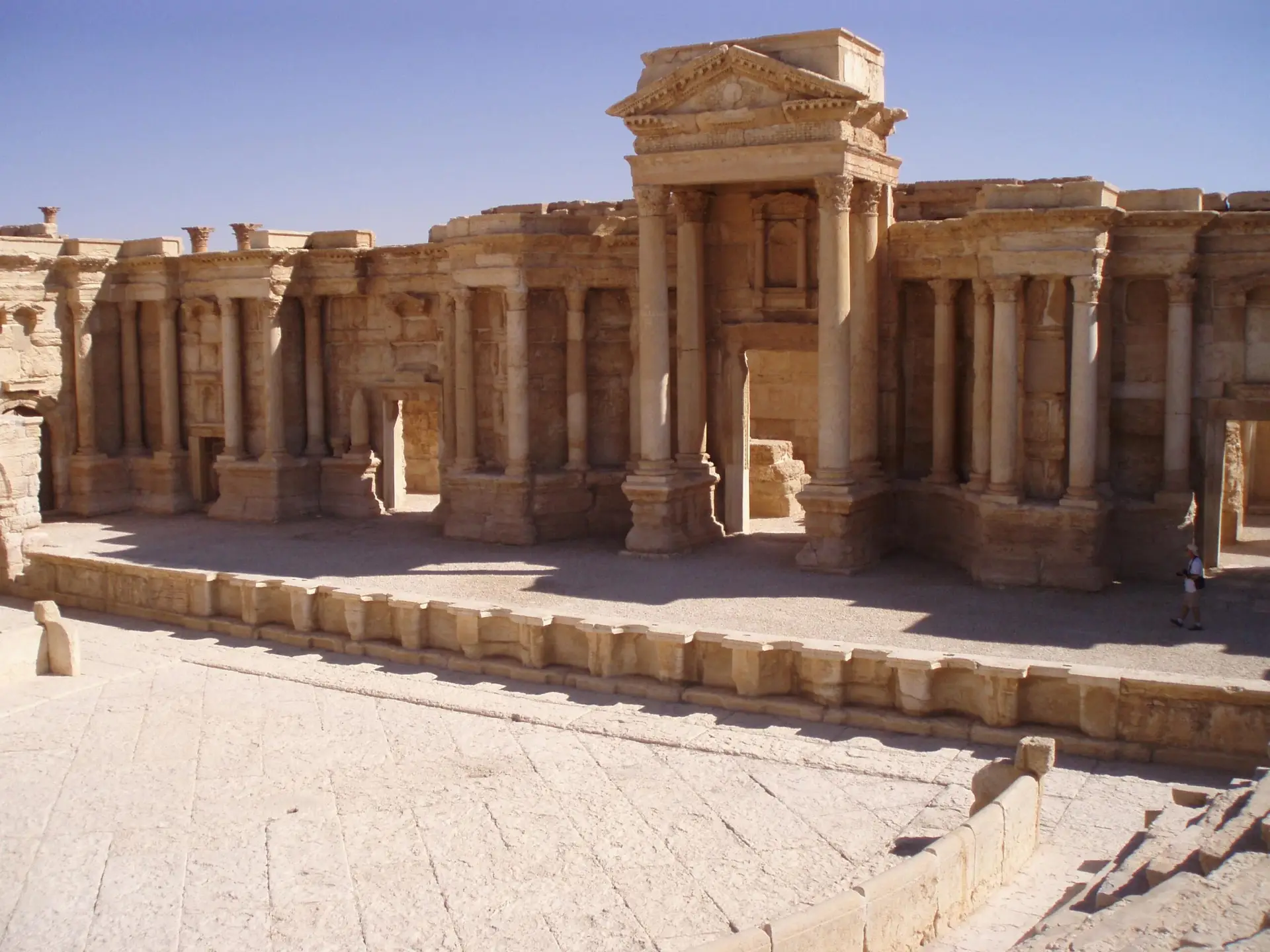
The first reason is the natural tendency; when you love something, you want to keep it alive, you want to preserve it.
Since I was brought up in that environment, whether in my own home or whenever I visited a family’s home, I was exposed to this tradition and developed a passion and love for it. So that makes me want to do it just out of love. Aside from the Muwashshah, there are these Sufi pieces called Ashghal Dhikr. I also care about preserving those.
While studying, I was brought in front of a few pieces that were nowhere to be recorded, like there was no actual recording of them nor a musical notation. So these pieces could be considered, you know, on the brink of extinction, and I found a lot of value in them.
And why am I the only one who has memorized these? These works need to be known. To me, it’s a natural thing. It is not a project that I’m taking on. This work is something that comes naturally to me, like a calling. I have something beautiful. I need to pass it on and cannot be the only one who has access to it. That’s pretty much it.
Speaking of war, it is actually one of the major factors why I’m compelled to act on this urge to preserve this art, which has unfolded to, unfortunately, a lot of destruction of both material and non-material heritage and infrastructure. I find that if I could be one of the people to preserve something from destruction, I feel it to be a calling. As we said, it is much more profound and meaningful than somebody taking on a project.
I am showing people through my work and my concerts.
For example, in Europe, with a European audience, they get to hear Muwashshah, which is truly beautiful. And I post about the piece’s profile and share: “Okay, this piece dates back to this time. It was composed by this person and has these components.”
So, through my concerts, I am leaving people with something beautiful that they can remember about Syria, and for me, it brings the utmost joy and ecstasy.
I find it worth mentioning that in the European society where I’m living and presenting this art, I receive very positive feedback and reaction. People are very open-minded and excellent receptors of musical culture.
Because, you know, I get asked, for example, by other Arabs, like, you’re singing in Arabic, so how do people even understand you? But to me, this has never been an obstacle.
I find people have a high quality, refined taste that they receive something that’s totally new, with such a sensibility, excitement, and curiosity.
It is a question that needs a bit of time to contemplate because it isn’t something I have thought about before.
But what comes to mind at this instance is that music is a spiritual message, a spiritual calling. It’s a common language that can do everything. It can speak. It can express. And it can resolve.
Do you want global book, music, and movie recommendations straight to your inbox?
Sign up for the newsletter below!

Last year, I visited Bahia, one of the most magical places I’ve ever been. Its capital, Salvador, is known as the blackest city outside of
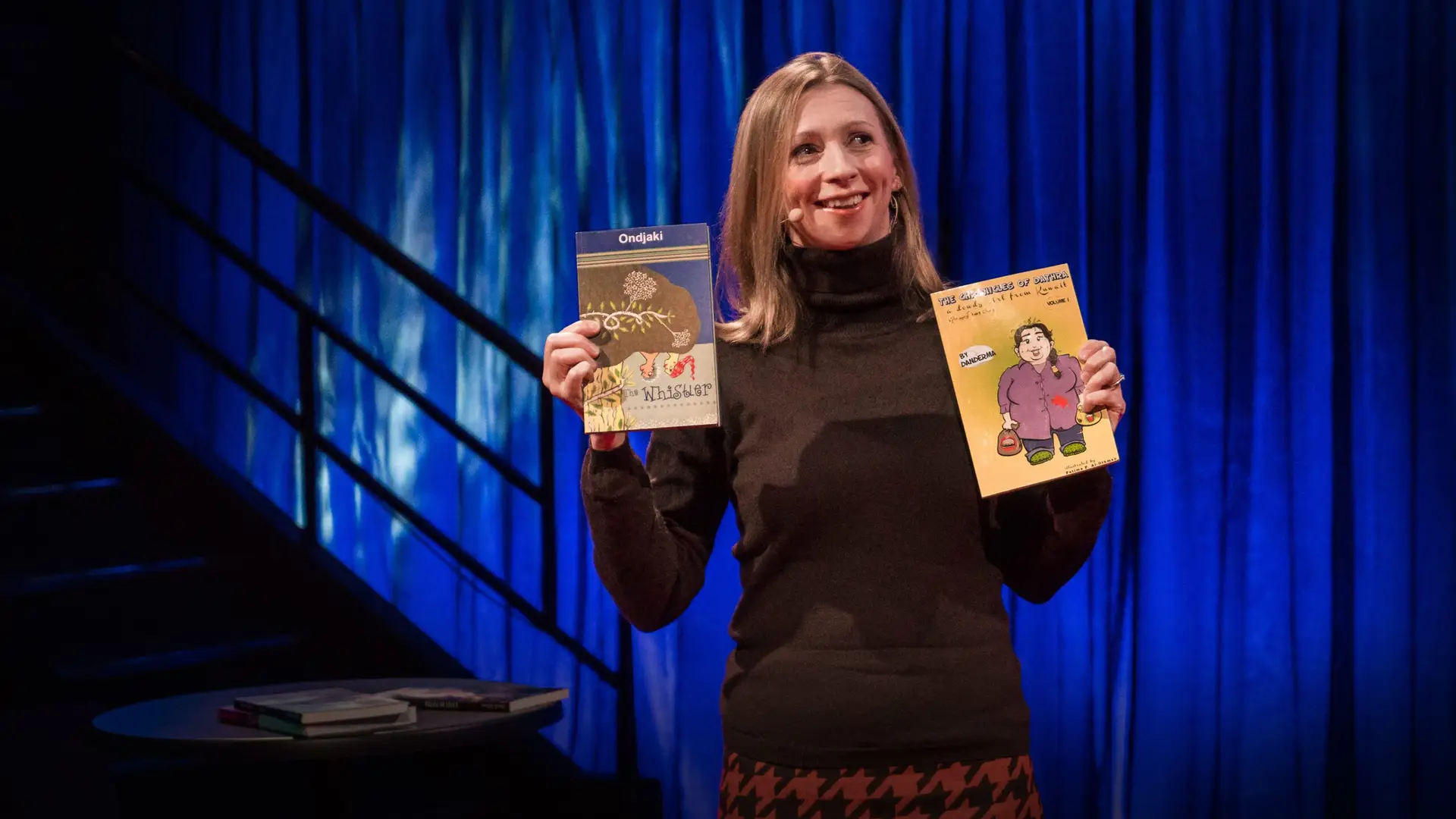
Ann Morgan is an author, speaker & editor. She has written four books and started two blogs, ayearofreadingwomen and ayearofreadingtheworld. She is also a Literary

I love Kenyan music and bands like Sauti Soul, but I came across something even more interesting not too long ago. I discovered the father
